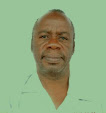The Topic of the Service of 5th May 2013, at St. Margaret's UCZ Church was entitled: “Gentiles Receive the Good News”.
Preacher: Reverend
Kuzipa Nalwamba
Scripture Reading:
Zephaniah
3: 14 –20
Acts 16:
11 – 15
John 14: 25 – 31
SERMON SUMMARY
The theme of our service is “Gentiles Receive the Good
News”. Ethnic pride is the reason why the Jews resisted other people to receive
the Good News. They thought God was an ethnic God who could be domesticated. No
matter how they invested in this pride God showed them that he was a God of all
people.
In Zephaniah 3: 15 and 17 talks of a future covenant for
all people. Israel, like any other nation, has to repent in order for the Jews
to get salvation. They were no more essential to God than any other ethnic groups.
Even today people segregate each other on the basis of
being Christian or of belonging to the same Church and even the same
congregation.
The covenant between God and men is for all the people.
In Acts 16 we read about the conversion of a Gentile from the city of Thyatira named Lydia, a dealer in purple cloth. She
became a Christian after Paul and others, who were Jews, introduced Christ to
her. She invited them to come and visit her at her house by virtue of her being
a Christian. Paul and his companions accepted someone who was not a member of
their tribe. She knew that these Jews were not going to judge her by her
ethnicity but by the fact that she was a Christian.
Many of us today do segregate others by
their tribe or race.
In Acts 16: 11 – 15 we learn that
the Holy Spirit is the equaliser and all Christians are baptised in the same
way and are identical to one another. The Holy Spirit ensures the presence of
Jesus Christ in our lives despite our different backgrounds.
Zambia has been declared a Christian nation. How do we accommodate
those Investors who are not Christians? This is our opportunity to demonstrate to
them the love and hospitality of God to all mankind.
In our case what is important? Is it ethnicity or faith? Ethnicity
is not what fundamentally defines us as God’s people.
Let us think of the way we could include others who are not
like us; because whilst we were sinners Christ died for us.
AMEN!
THOUGHT FOR THE
WEEK: (From the Church's Weekly Bulletin)
PRAYING FOR OUR
ENEMIES
The first thing we are called to do when we think of
others as our enemies is to pray for them. This is certainly not easy. Lt requires
discipline to allow those who hate us or those toward whom we have hostile
feelings to come into the intimate centre of our hearts.
Yet every time we overcome the impatience with our opponents
and are willing to listen to the cry of those who persecute us, we will
recognise them as brothers and sisters too.
Praying for our enemies is therefore a real event, the
event of reconciliation. It is impossible to lift our enemies up in the presence
of God and at the same time continue to hate them.
Seen in the place of prayer, even the unprincipled
dictator and the vicious torturer can no longer appear as the object of fear, hatred
and revenge, because when we pray for them we stand at the centre of the great
mystery of Divine Compassion.
There is probably no prayer as powerful as the prayer for
our enemies. But it is also the most difficult prayer since it is most contrary
to our impulses. This explains why some people consider prayer for our enemies
the main criterion of holiness.
"Circles of Love" adapted from Henri Nouwen's
AMEN!


you are invited to follow my blog
ReplyDelete